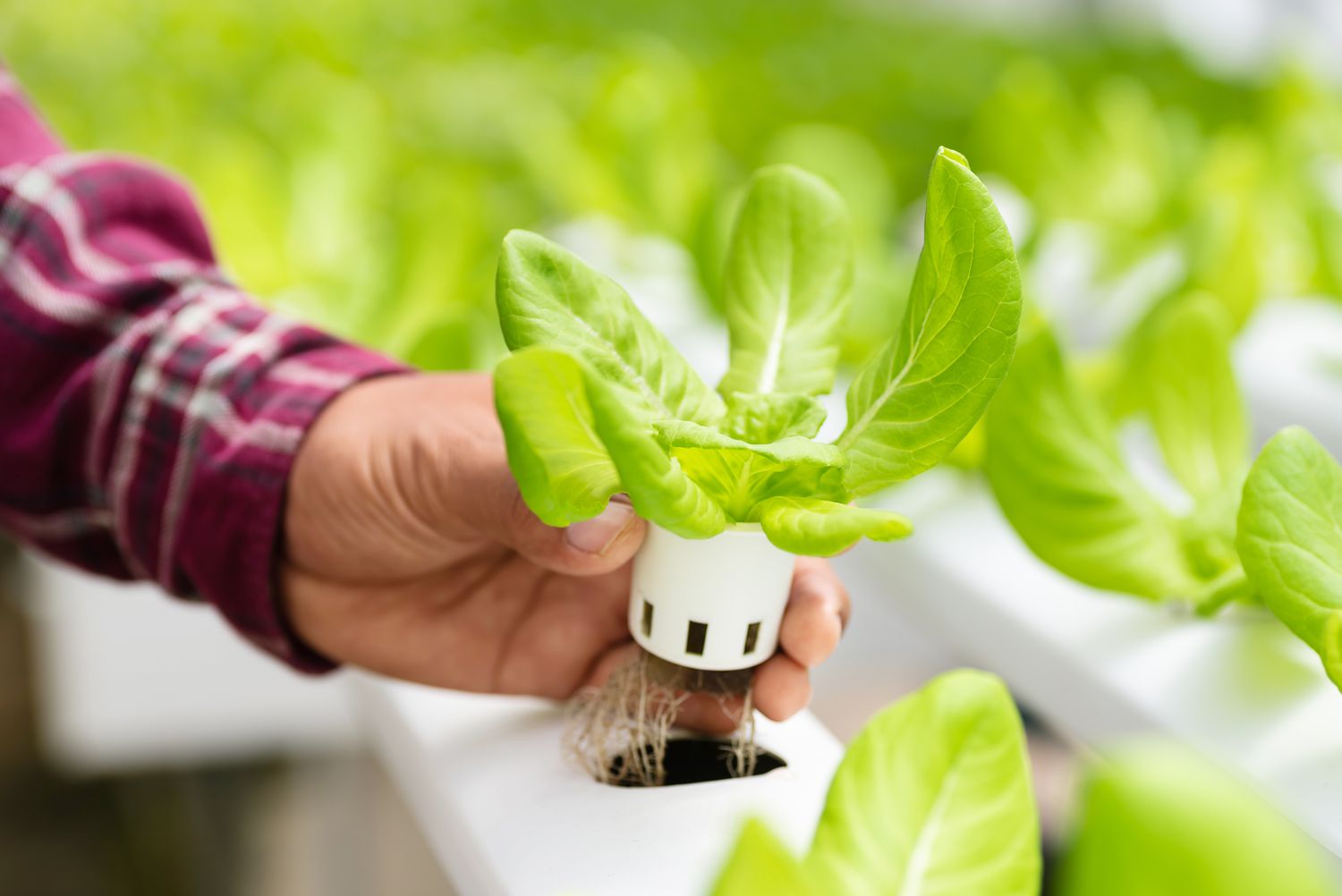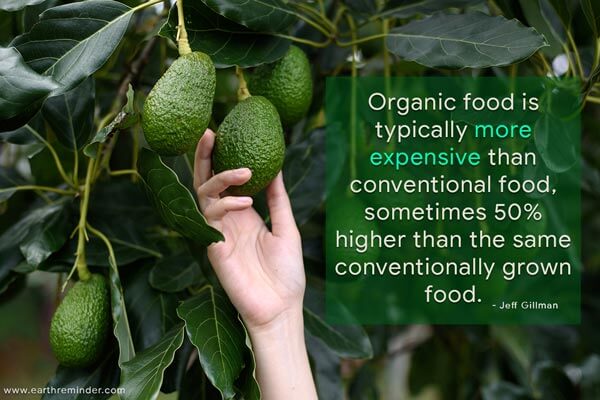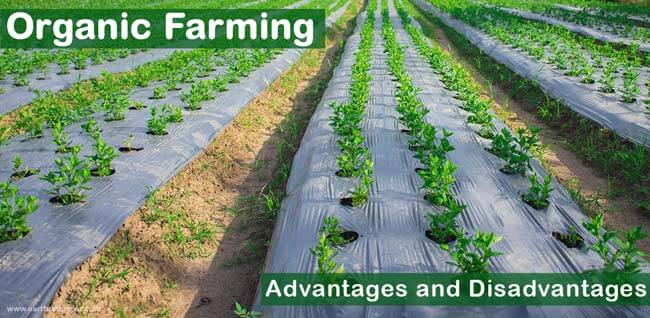Organic farming offers numerous advantages, benefiting both The environment & human health. It eliminates The use of synthetic pesticides & fertilizers, reducing chemical pollution & protecting water sources. Organic farms also promote biodiversity, allowing a variety of crops, livestock, & wildlife To thrive. Additionally, organic food is considered healthier due To lower pesticide residue & higher nutrient levels. However, organic farming also faces challenges. It generally requires more labor, making it potentially more costly. The risk of pests & diseases is also higher without The use of synthetic chemicals. Finally, organic farming may have lower yields compared To conventional methods. Overall, while organic farming has clear benefits, it also presents certain challenges that should be considered.
The Advantages and Disadvantages of Organic Farming: Understanding the Benefits and Challenges. Discover The pros & cons of organic farming in this insightful article. Learn about The benefits it brings & The challenges it presents. Find out why understanding organic farming is crucial for a sustainable future.
Advantages of Organic Farming
Organic farming has gained significant attention in recent years due To its numerous advantages. Let’s explore some of The key benefits:
1. Health Benefits
Organic farming avoids The use of synthetic pesticides & fertilizers, reducing The amount of harmful chemicals in our food. This results in healthier produce that is free from chemical residues, making it safer for consumption.
Moreover, organic farming promotes The use of natural methods such as crop rotation, composting, & biological pest control. These practices enhance soil fertility, resulting in nutrient-rich crops that are more nutritious & have higher antioxidant content.
By consuming organic produce, individuals can reduce their exposure To potentially harmful chemicals & improve their overall health.
2. Environmental Benefits
One of The major advantages of organic farming is its positive impact on The environment. Organic farmers prioritize sustainability & employ methods that minimize harm To The ecosystem.
Organic farming practices promote soil conservation & prevent soil erosion, as they focus on building healthy soils through composting & crop rotation. This helps maintain soil fertility in The long run & reduces The risk of soil degradation.
In addition, organic farming practices help conserve water resources by reducing water pollution & minimizing water wastage. These practices also promote biodiversity by providing habitats for beneficial insects, birds, & other wildlife.
3. Economic Benefits
While organic farming initially requires more labor & investment, it can prove To be economically beneficial in The long term.
Organic products often fetch higher prices in The market due To their perceived quality & environmental benefits. By adopting organic farming methods, farmers can tap into The growing demand for organic produce & potentially earn higher profits.
Organic farming also reduces reliance on expensive synthetic inputs, such as chemical fertilizers & pesticides, resulting in cost savings for farmers. Moreover, organic farming promotes self-sufficiency by encouraging on-farm resource recycling & reducing dependence on external inputs.
4. Improved Soil Health
Organic farming practices focus on building & maintaining healthy soils. By avoiding The use of synthetic chemicals, organic farmers rely on natural methods To improve soil fertility & structure.
These methods include The use of organic fertilizers, such as compost & manure, which enrich The soil with essential nutrients. Organic farmers also implement crop rotation, which helps prevent nutrient depletion & reduces The risk of pest & disease buildup.
Through these practices, organic farming ensures long-term sustainability by preserving The health & productivity of The soil. Healthy soils contribute To improved plant growth & yield, while also reducing The need for external inputs.
5. Taste & Quality
Many consumers prefer organic produce due To its superior taste & quality. Organic farming focuses on enhancing The natural flavors & qualities of crops, resulting in delicious & nutritious food.
The absence of synthetic chemicals in organic farming allows The crops To develop their full potential, resulting in better taste & aroma. Additionally, organic farming methods often prioritize varieties that are known for their taste & nutritional value, further enhancing The overall quality of organic produce.
Disadvantages of Organic Farming
While organic farming offers numerous benefits, it also presents certain challenges. Let’s take a look at some of The disadvantages:
1. Lower Yields
Organic farming typically yields lower crop quantities compared To conventional farming. This is primarily due To The absence of synthetic fertilizers & pesticides, which can result in higher pest & disease pressure & reduced nutrient availability.
However, it’s important To note that while organic yields may be lower, The focus is on producing high-quality, nutrient-dense crops rather than maximizing quantity.
2. Increased Labor Requirements
Organic farming often requires more manual labor compared To conventional farming. Without The use of synthetic chemicals for weed & pest control, organic farmers rely on hand weeding, biological control methods, & other labor-intensive practices.
While this can be seen as a disadvantage in terms of increased labor costs, it also creates employment opportunities & supports local communities.
3. Higher Production Costs
The production costs associated with organic farming are often higher than those of conventional farming. Organic farmers invest in organic fertilizers, pest control measures, & certification processes, all of which can be more expensive than their conventional counterparts.
Additionally, organic farmers may face price premiums for organic inputs, further increasing production costs. However, as mentioned earlier, organic products often fetch higher prices in The market, which can help offset these higher costs.
4. Market Challenges
While The demand for organic products is growing, there can still be challenges in marketing & selling organic produce. Organic farmers need To navigate certification requirements & comply with regulations To label their products as organic.
Furthermore, organic farmers may face competition from larger, conventional farms that benefit from economies of scale. Establishing & maintaining organic certification can also be a time-consuming & costly process, especially for small-scale farmers.
5. Pest & Disease Management
Organic farmers rely on natural methods for pest & disease management, which can sometimes be less effective than synthetic chemical solutions. Biological control methods, such as introducing beneficial insects or using natural repellents, may not always provide complete protection against pests or diseases.
This can result in yield losses or The need for more frequent monitoring & intervention To prevent crop damage. Organic farmers must employ proactive pest & disease management strategies To minimize The impact on their crops.
6. Limited Availability
Organic produce may not be as readily available as conventional produce in all areas. While The demand for organic products is increasing, organic farming practices may not be as widespread or easily accessible in certain regions.
Consumers in such areas may face challenges in finding organic produce or need To rely on alternative sources such as farmers’ markets or community-supported agriculture programs.
7. Transition Period
Transitioning from conventional To organic farming methods can be a time-consuming process. Organic certification requires a transition period during which synthetic chemicals are phased out, & organic practices are gradually implemented.
During this period, farmers may face challenges in managing pests, diseases, & weed control without The use of synthetic chemicals. Additionally, during The transition period, farmers cannot sell their produce as organic, potentially impacting their income.
My Experience with Organic Farming
As a passionate advocate for sustainable agriculture, I have had The opportunity To experience The benefits & challenges of organic farming firsthand. I have witnessed how organic farming can improve soil health, enhance biodiversity, & produce nutritious crops.
However, I have also recognized The challenges that organic farmers face, including The need for more labor, higher production costs, & market constraints. Despite these challenges, The environmental & health benefits of organic farming make it a worthwhile endeavor.
Key Features of Organic Farming: Understanding The Benefits & Challenges 🌱
- Promotes health & well-being of consumers 🥑
- Minimizes environmental impact 🌏
- Enhances soil fertility & structure 🧊
- Supports biodiversity & ecosystems 🌽
- Produces high-quality, nutritious crops 🥕
Organic farming is a holistic approach To agriculture that offers numerous advantages while also presenting certain challenges. By understanding The benefits & challenges associated with organic farming, individuals can make informed choices as consumers & support sustainable agricultural practices.
For more detailed information on The advantages & disadvantages of organic farming, you can refer To this informative article.
To further explore The topic, you may also visit this website that provides insights into The advantages & disadvantages of organic farming.
The Advantages & Disadvantages of Organic Farming: Understanding The Benefits & Challenges
Organic farming offers numerous benefits that promote sustainability, biodiversity, & environmental conservation. Here are some of The key advantages:
1. Environmentally Friendly: Organic farming practices prioritize The use of natural fertilizers, such as compost & manure, instead of synthetic chemicals. This reduces The contamination of soil, water, & air, resulting in a healthier ecosystem.
2. Improved Soil Quality: Organic farmers focus on building & maintaining healthy soil through practices like crop rotation, cover cropping, & The use of organic matter. These methods enhance soil fertility, structure, & long-term sustainability.

3. Better Nutritional Value: Organic crops are often found To have higher levels of certain nutrients, such as Vitamin C, iron, magnesium, & phosphorus, compared To conventionally grown produce. This can contribute To a more nutritious diet for consumers.
4. No Harmful Pesticides: Organic farming avoids The use of synthetic pesticides & genetically modified organisms (GMOs). This reduces The risk of pesticide residues on food & potential adverse effects on human health.
5. Support for Biodiversity: Organic farms provide a habitat for a wide range of organisms, including beneficial insects, birds, & microorganisms. By avoiding The use of harmful chemicals, organic farming helps preserve biodiversity & promotes a balanced ecosystem.
Disadvantages of Organic Farming
While organic farming offers many advantages, it also faces certain challenges that need To be addressed:
1. Lower Yields: Organic farming generally yields lower crop quantities compared To conventional farming. This is mainly due To The absence of synthetic fertilizers & pesticides, which can limit plant growth & increase vulnerability To pests & diseases.
2. Higher Labor Costs: Organic farming methods often require more labor-intensive practices, such as manual weeding & pest management. This can result in higher production costs, which may be reflected in The price of organic products.
3. Limited Availability: Organic products are sometimes less readily available in certain regions & may have a higher price tag. Meeting The growing demand for organic food requires increased production & distribution networks.
4. Greater Risk of Crop Losses: Organic farmers rely on natural methods To control pests & diseases, which can be less effective than synthetic chemicals. This increases The risk of crop losses & challenges farmers’ ability To meet market demands consistently.
The Balance of Organic Farming
Organic farming presents a sustainable alternative To conventional methods, but it is essential To acknowledge both The benefits & challenges it entails. By understanding The balance between advantages & disadvantages, we can work towards maximizing The positive impacts of organic farming while addressing its limitations.
To promote widespread adoption of organic farming, it is crucial To support farmers through training programs, research, & financial incentives. Increasing public awareness about The benefits of organic farming can also drive consumer demand & encourage The growth of The organic market.
Moreover, combining organic farming with other sustainable practices, such as agroforestry & integrated pest management, can further enhance The resilience & productivity of agricultural systems.
Comparison of Organic Farming with Conventional Farming
To better illustrate The advantages & disadvantages of organic farming, let’s compare it with conventional farming using a table:
| | Organic Farming | Conventional Farming |

| 🌱 | Emphasizes natural fertilizers & pest control methods | Relies on synthetic fertilizers & pesticides |
| 🌍 | Promotes environmental conservation & biodiversity | May contribute To environmental degradation |
| 🏭 | Reduces The use of chemicals & synthetic inputs | Relies heavily on chemical inputs & GMOs |
| 💪 | Builds long-term soil health & fertility | May deplete soil quality over time |
| 🍎 | May have higher nutrient content | May contain pesticide residues |
Conclusion
In conclusion, organic farming offers several advantages, including environmental sustainability, improved soil quality, & better nutrition. However, it also faces challenges such as lower yields & higher labor costs. Striking a balance between The benefits & limitations of organic farming is crucial for promoting sustainable agriculture & addressing The global demand for healthy & environmentally friendly food.
My personal experience with organic farming has been eye-opening. I had The opportunity To volunteer at a local organic farm, where I witnessed The dedication & hard work required To grow crops without synthetic chemicals. It was inspiring To see how organic farmers prioritize The health of The soil, The surrounding ecosystem, & The consumers who benefit from their produce.
By embracing organic farming practices & supporting The growth of The organic market, we can contribute To a healthier & more sustainable future for agriculture & our planet.

What are The advantages of organic farming?
Organic farming offers several benefits such as:
– Environmentally friendly production methods
– Reduced exposure To chemical pesticides & fertilizers
– Improved soil fertility & nutrient content
– Enhanced biodiversity & preservation of ecosystems
– Protection of human health by reducing consumption of harmful chemicals
What are The disadvantages of organic farming?
While organic farming has numerous advantages, it also has some challenges such as:
– Lower yields compared To conventional farming methods
– Limited availability & higher cost of organic products
– Greater susceptibility To pests & diseases
– Longer production cycles & slower growth rates
– Difficulties in meeting The increasing demand for organic produce
How does organic farming benefit The environment?
Organic farming practices contribute To environmental sustainability through:
– Avoidance of synthetic pesticides & fertilizers that can harm ecosystems
– Protection of soil quality & prevention of erosion
– Reduction of greenhouse gas emissions
– Conservation of water resources
– Promotion of wildlife habitats & biodiversity
Does organic farming improve soil fertility?
Yes, organic farming methods focus on enhancing & maintaining soil fertility through:
– Application of organic matter such as compost & manure
– Crop rotation & intercropping To naturally replenish soil nutrients
– Avoidance of chemical fertilizers that may degrade soil quality over time
– Fosterage of beneficial soil organisms that aid in nutrient cycling
Are organic products healthier for consumption?
Organic products are considered healthier due To:
– Lower levels of pesticide residues
– Absence of genetically modified organisms (GMOs)
– Higher concentrations of certain nutrients
– No use of synthetic hormones or antibiotics in livestock
What challenges does organic farming face?
Organic farming encounters various challenges, including:
– Limited access To organic seeds & breeds
– Difficulty in managing pests & diseases without synthetic chemicals
– Higher labor requirements for weed control & crop management
– Certification & compliance costs for organic standards
– Competing with conventional agriculture in terms of cost & productivity
Can organic farming meet The global food demand?
While organic farming has its limitations, it can play a role in meeting The global food demand through:
– Improved practices & technological advancements in organic systems
– Adoption of organic principles by conventional farmers
– Supportive policies & investment in organic agriculture
– Increased consumer demand for organic products, encouraging expansion
Is organic farming more profitable?
Organic farming can be profitable, but it varies depending on factors like scale, market demand, & production efficiency. While organic products often have higher prices, their production costs may also be higher due To labor-intensive practices & certification requirements. However, organic farmers can benefit from niche markets, direct sales, & The potential for price premiums.
Conclusion
Organic farming has gained popularity in recent years due To its numerous advantages. It provides several benefits To The environment, human health, & The overall ecosystem. By eliminating The use of synthetic pesticides, organic farming reduces The risk of harmful chemical residues in our food & water, making it safer & healthier for consumption.
Furthermore, organic farming promotes biodiversity & soil fertility through The use of natural fertilizers & pest control methods. This not only ensures The long-term sustainability of our agricultural practices but also contributes To The preservation of wildlife & habitat conservation.
Additionally, organic farming reduces The carbon footprint by minimizing The use of fossil fuels, contributing To The fight against climate change. It also supports local economies, as organic farming usually involves small-scale & family-owned farms, which helps in creating jobs & promoting community development.
However, we must also acknowledge The challenges & disadvantages associated with organic farming. The higher costs & lower yields compared To conventional farming can be major obstacles for farmers. Organic farming practices require more labor-intensive techniques & often rely on manual weed control & crop rotation, which demand greater expertise & time commitment.
Moreover, The availability & accessibility of organic food may pose challenges for consumers, as it is often more expensive & not readily available everywhere.
In conclusion, organic farming has numerous advantages, including improving human health, protecting The environment, & supporting local economies. However, it also has its challenges, such as higher costs & lower yields. By understanding both The benefits & challenges of organic farming, we can make informed choices & support sustainable agricultural practices that benefit us all in The long run.
